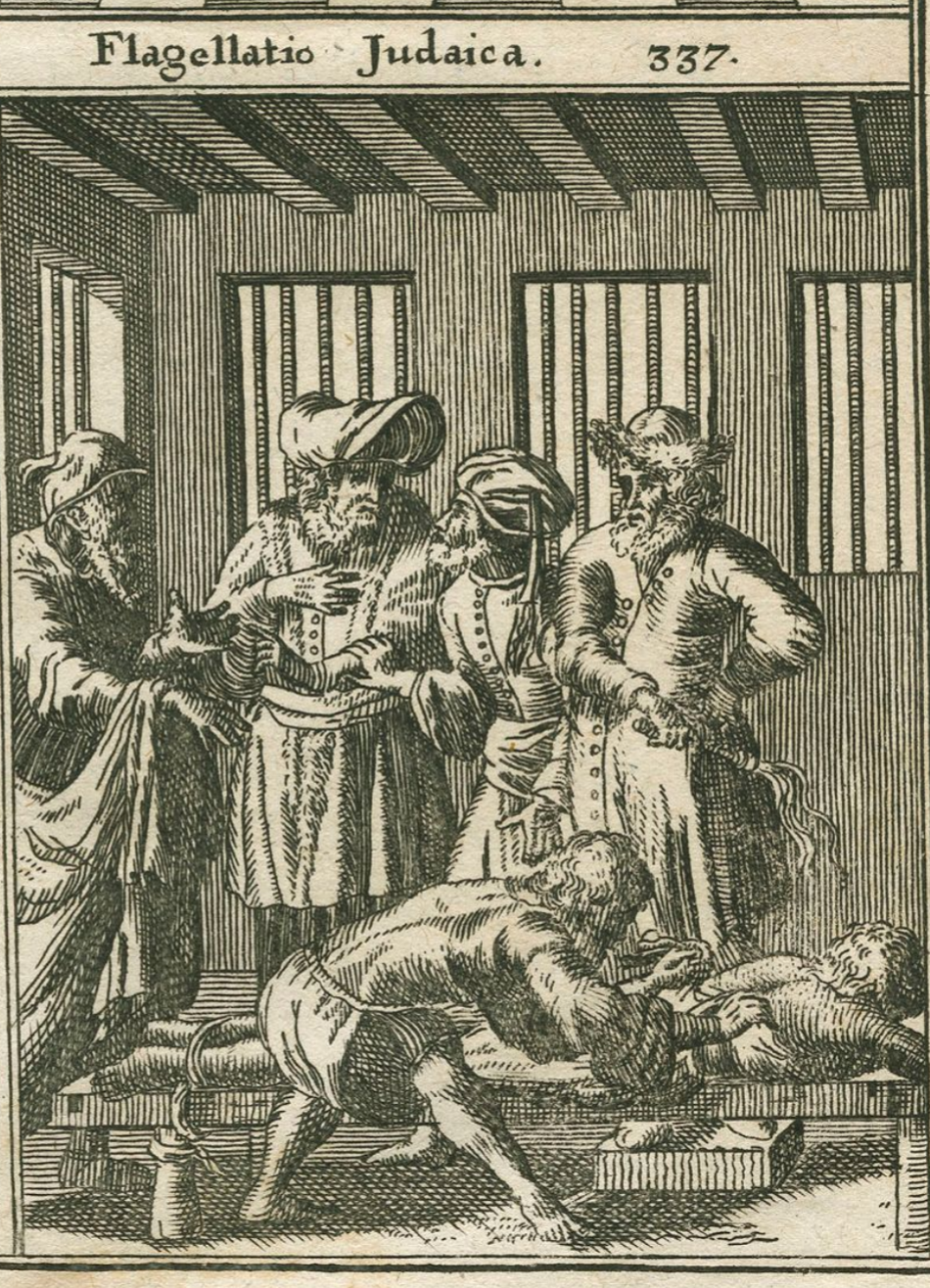Makkoth on:
[Wikipedia]
[Google]
[Amazon]
 Makkot () is a tractate of the
Makkot () is a tractate of the
 Makkot () is a tractate of the
Makkot () is a tractate of the Mishnah
The Mishnah or the Mishna (; , from the verb ''šānā'', "to study and review", also "secondary") is the first written collection of the Jewish oral traditions that are known as the Oral Torah. Having been collected in the 3rd century CE, it is ...
and Talmud
The Talmud (; ) is the central text of Rabbinic Judaism and the primary source of Jewish religious law (''halakha'') and Jewish theology. Until the advent of Haskalah#Effects, modernity, in nearly all Jewish communities, the Talmud was the cen ...
. It is the fifth volume of the order of ''Nezikin
''Nezikin'' ( ''Neziqin'', "Damages") or ''Seder Nezikin'' (, "The Order of Damages") is the fourth Order of the Mishna (also the Tosefta and Talmud). It deals largely with Jewish criminal and civil law and the Jewish court system.
Nezikin co ...
''. Makkot deals primarily with laws of the beth din ('' halakhic'' courts) and the punishments which they may administer and may be regarded as a continuation of tractate Sanhedrin
The Sanhedrin (Hebrew and Middle Aramaic , a loanword from , 'assembly,' 'sitting together,' hence ' assembly' or 'council') was a Jewish legislative and judicial assembly of either 23 or 70 elders, existing at both a local and central level i ...
, of which it originally formed part.
In its scope of application are the topics of:
*False witnesses (''edim zomemim'');
*Exiles in a city of refuge (''aray miklat''); and
*The lashes administered by the beth din (''makkot'').
The third chapter of Makkot enumerates 59 offenses, each entailing lashes ( Malkot). Of these, three are marital sins of priests; four, prohibited intermarriages; seven, sexual relations of an incestuous nature; eight, violations of dietary laws; twelve, various breaches of the negative precepts; twenty-five, abuses of Levitical
Levites ( ; ) or Levi are Jewish males who claim patrilineal descent from the Tribe of Levi. The Tribe of Levi descended from Levi, the third son of Jacob and Leah. The surname ''Halevi'', which consists of the Hebrew definite article "" ''Ha-' ...
statutes and vows. When the offense persists, the punishment depends on the number of forewarnings (see ''hatra'ah''). The Mishnah gives 39 as the maximum number of stripes the court may impose for any one misdemeanor, but the convict must be examined as to their physical ability to endure the full count without endangering their life. The convict is bound in a bent position to a post, and the public executioner administers the punishment with a leather strap while one of the judges recites appropriate scriptural verses: Deuteronomy 28:58–59 and 29:8 and Psalm 78:38. Anyone guilty of a sin which is punished by ''kareth
The Hebrew term ''kareth'' ("cutting off" , ), or extirpation, is a form of punishment for sin, mentioned in the Hebrew Bible and later Jewish writings. The typical Biblical phrase used is "that soul shall be cut off from its people" or a slight ...
'' ("excision") may be cleared by flagellation. The author of this midrash
''Midrash'' (;"midrash"
. ''Random House Webster's Unabridged Dictionary''. ; or ''midrashot' ...
, Hanina ben Gamaliel, adds, "If by the commission of a sin one forfeits his soul before God, so much the more reason is there for the belief that, by a meritorious deed, such as voluntary submission to punishment, his soul is saved."
. ''Random House Webster's Unabridged Dictionary''. ; or ''midrashot' ...
References
Tractates of the Talmud Jewish courts and civil law {{judaism-book-stub